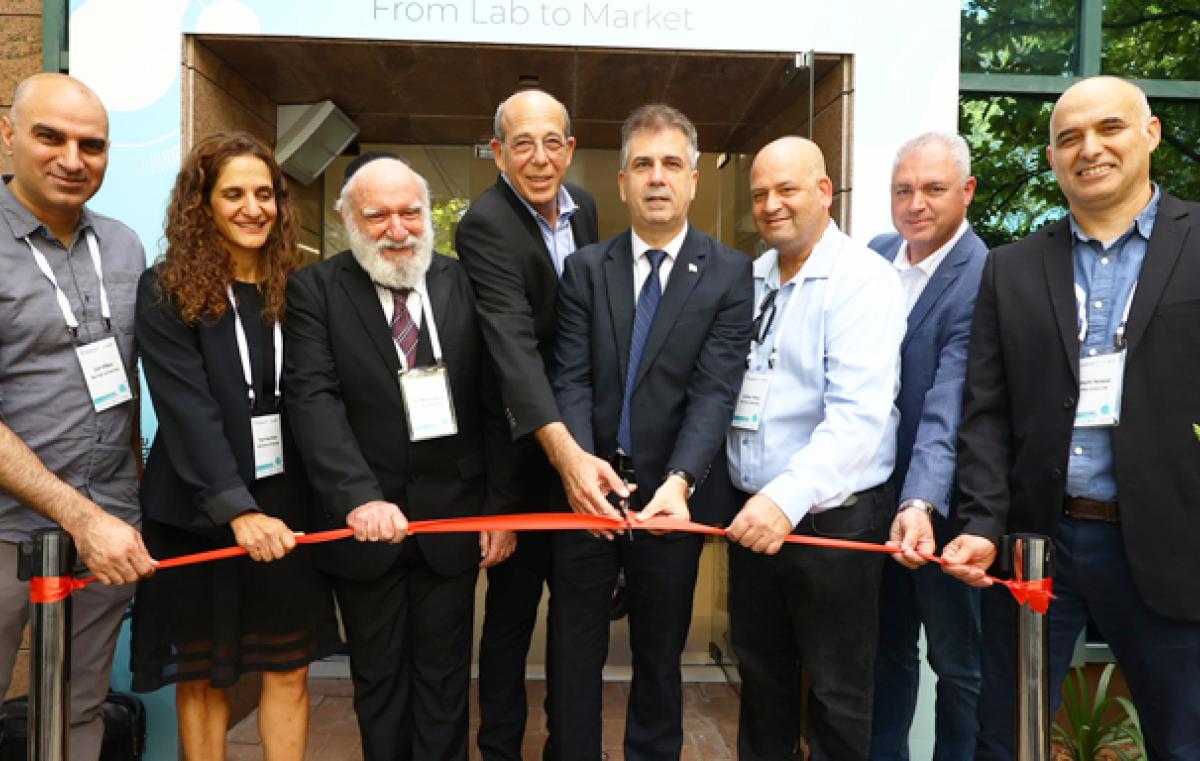Israel's First National Institute for Energy Storage Inaugurated at Bar-Ilan University
Backed by a NIS 130 million investment, the new institute aims to advance cutting-edge research, commercialization, and startup innovation in electrochemical energy technologies

A Strategic Leap Toward a Sustainable Energy Future
In a milestone event for Israeli innovation, Minister of Energy and Infrastructure Eli Cohen and Bar-Ilan University President Prof. Arie Zaban officially inaugurated the National Institute for Electrochemical Energy Storage, established at Bar-Ilan University in collaboration with the Technion – Israel Institute of Technology.
The institute—Israel’s first of its kind—is set to play a central role in developing energy storage technologies, supporting groundbreaking academic research, and serving as a launchpad for climate-tech startups. More than six innovative companies are already active within the institute, working on battery storage, hydrogen technologies, and beyond.
“Energy is life,” said Minister Eli Cohen. “The establishment of the National Energy Institute harnesses Israeli innovation to strengthen our energy sector and economy. It will yield breakthroughs that secure our energy independence, improve environmental quality, and make electricity more affordable. Energy is a vital part of the AI revolution—and Israel will lead the way.”
A Personal Mission and a National Imperative
“As an energy researcher and entrepreneur, building this energy hub is a personal mission—and a national priority,” stated Prof. Arie Zaban, President of Bar-Ilan University. “We need deep-tech solutions to meet our climate goals and secure the planet’s future. This institute will establish Israel as a world-class ecosystem for climate technology.”
The institute will serve as a multidisciplinary innovation platform that connects academia, industry, and government. It will address every stage of the technological development pipeline—from basic research to prototype creation to commercial partnerships.
Showcasing Research Excellence and Industry Collaboration
During the launch, Minister Cohen and Director-General Yossi Dahan toured the institute’s advanced laboratories and viewed cutting-edge electrochemical research tools. The event included a joint conference with the institute's commercialization engine, NETZERO, focused on transitioning technologies from R&D to market readiness. "This isn't just about offering R&D infrastructure," said Shmuel Kedmi, NETZERO CEO, "it's about venture creation, building a bridge between scientific discovery and market deployment."
Technion President Prof. Uri Sivan emphasized: “Sustainability is one of the greatest challenges of the 21st century. This institute is a powerful step forward—bringing together academia, industry, and government to work toward a cleaner, healthier, and more sustainable future.”
Supporting the Next Generation of Climate Solutions
The institute will foster advanced research infrastructure, train a new generation of energy experts, and provide scientific and technological support for startups and companies working toward renewable energy integration. It will play a key role in achieving Israel’s ambitious goal of net-zero emissions by 2050.
During the launch, the winners of the institute’s first research call were announced. Selected projects span Tel Aviv University, The Hebrew University, Ben-Gurion University, Ariel University, Weizmann Institute, Bar-Ilan University, and the Technion.
Notable researchers already include:
-
Prof. Emanuel Peled (Tel Aviv University), collaborating with BIU on sodium-ion batteries for low-cost grid storage
-
Prof. Charles Diesendruck (Technion), focusing on lithium-ion battery recycling
These six academic projects will receive a total of NIS 4.5 million in funding from the Ministry of Energy and Infrastructure over the next three years.
Laying the Foundation for Israel’s Energy Innovation Ecosystem
The National Institute for Energy Storage will anchor Bar-Ilan’s broader Energy Innovation Hub, designed to accelerate Israel’s climate-tech ecosystem. Areas of focus include:
-
Electrochemistry and advanced batteries
-
Hydrogen technologies
-
Sustainable industrial materials
-
Carbon capture and emissions reduction
With hundreds of energy-related startups already active in Israel, the institute is positioned to meet rising global demand for climate solutions, support disruptive research, and help launch the next wave of transformative startups.